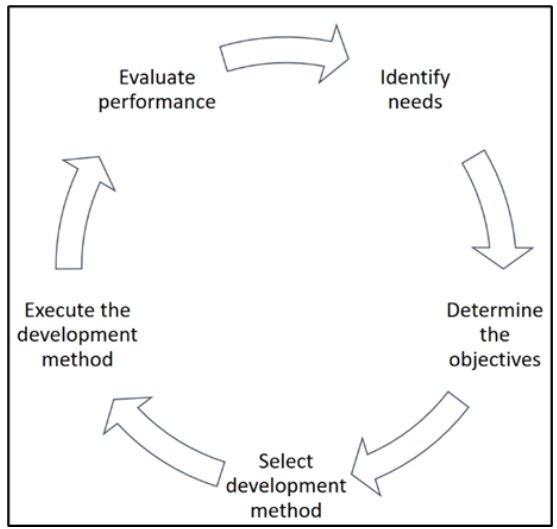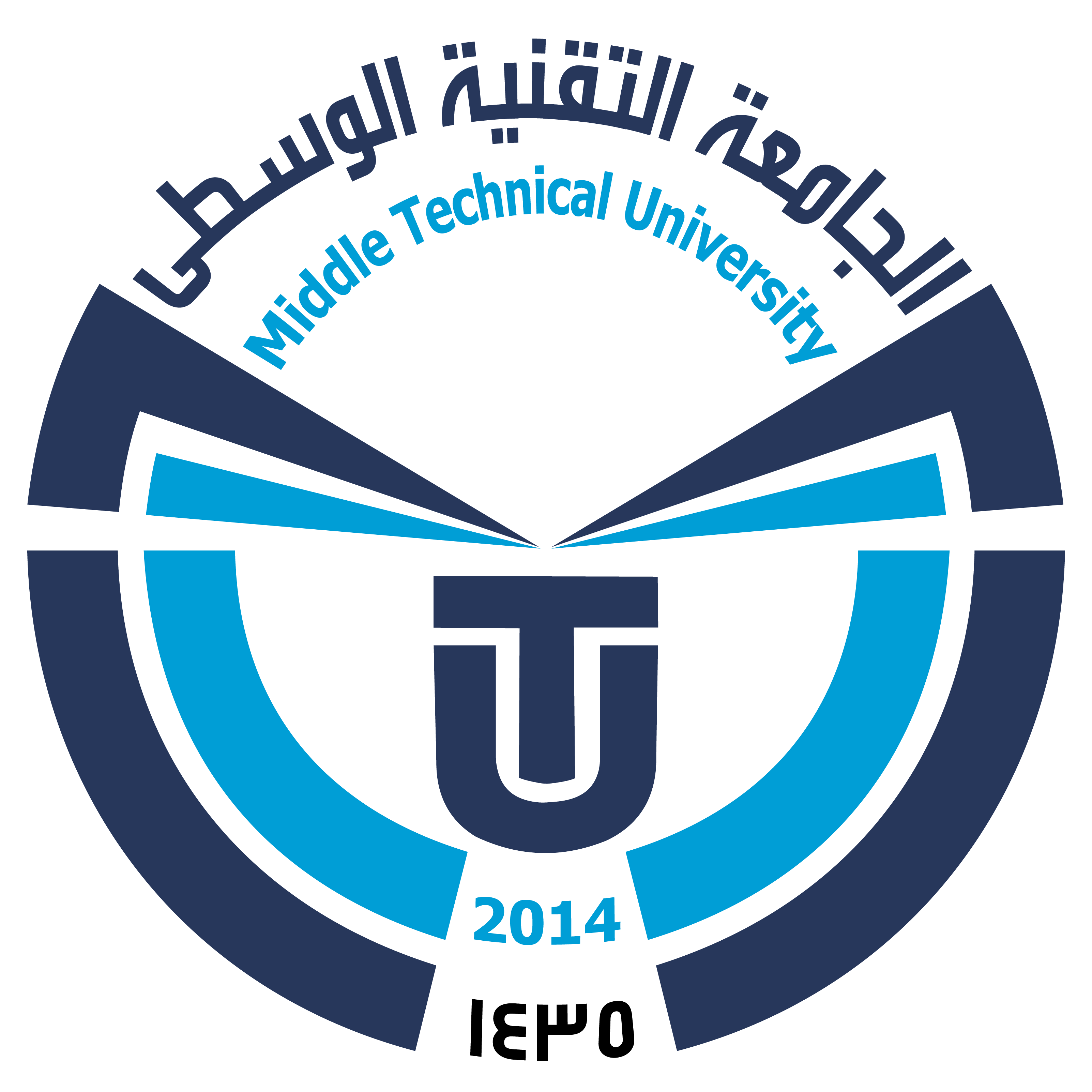Impact of Artificial Intelligence on Employee Development at Basrah University
DOI:
https://doi.org/10.51173/jt.v5i2.1366Keywords:
Artificial Intelligence, Machine Learning, Natural Language Processing, Employee Development, Employee PerformanceAbstract
Employees are the leading resource of any company because they are the base of a strong and long-running organization. Their performance affects the overall evolution of the organization. Thus, modern companies have started spending an enormous amount on employee development. It is an essential process for employees and organizations. Companies have started using recent technology in employee development to make this process more productive. Artificial Intelligence is a branch of computer science. It is based on the concept of imitation the human intellectual functioning. This research studies the impact of artificial intelligence on employee development. A descriptive analytical methodology is used. Artificial Intelligence is considered an independent variable. However, the dependent variable was Employee development with three dimensions (Skills, engagement, and performance). Basrah University in Iraq was taken as a sample. Consequently, a questionnaire of 24 questions is built and distributed to Basrah University employees. The collected answers were examined using SPSS. The result shows a significant impact between Artificial Intelligence applications and employee development.
Downloads
References
K.Jehanzeb, J. Mohanty, “Impact of employee development on job satisfaction and organizational commitment: person–organization fit as moderator”. International Journal of Training and Development, pp. 171-191, 2018. https://doi.org/10.1111/ijtd.12127.
III EH, “New employee development: A review and reconceptualization”. Human Resource Development Quarterly, pp. 233-252, 1996. https://doi.org/10.1002/hrdq.3920070305.
M. Budworth, J. Harrison, S. Chummar.” Beyond feedback: understanding how feedforward can support employee development”. Journal of Management Development, 2019. https://doi.org/10.1108/JMD-12-2017-0402.
G.Nasserddine, AE. Arid. “ Artificial Intelligence in Navigation Systems”. In Handbook of Research on AI Methods and Applications in Computer Engineering, pp. 86-107. IGI Global, 2023. https://doi.org/10.4018/978-1-6684-6937-8.ch005.
C. Zhang, Y. Lu, “Study on artificial intelligence: The state of the art and prospects”. Journal of Industrial Information Integration, 2021. https://doi.org/10.1016/j.jii.2021.100224.
GN.McLean, L. McLean L. “If we can't define HRD in one country, how can we define it in an international context?”. Human resource development international, vol. 4, no. 3, pp. 313-326, 2001. https://doi.org/10.1080/13678860110059339.
McCauley, C. D., & Hezlett, S. A. (2002). Individual development in the workplace. In N. Anderson, D. S. Ones, H. K. Sinangil, & C. Viswesvaran (Eds.), Handbook of industrial, work and organizational psychology, Vol. 1. Personnel psychology (pp. 313–335). Sage Publications Ltd.
TN. Garavan, “A strategic perspective on human resource development”. Advances in Developing Human Resources, vol. 9, no. 1, pp. 11-30, 2007. https://doi.org/10.1177/1523422306294492.
A. Hameed, A. Waheed. “ Employee development and its effect on employee performance a conceptual framework”. International Journal of business and social science, vol. 2, no 13, 2011. DOI: 10.30845/ijbss.
Mohan, K., & Gomathi, S. (2015). The Effects of Job Rotation Practices on Employee Development: An Empirical Study on Nurses in the Hospitals of Vellore District. Mediterranean Journal Of Social Sciences, 6(1), 209. DOI: 10.5901/mjss.2015.v6n1p209.
A. Elnaga, A. Imran, “The effect of training on employee performance”. European journal of Business and Management, vol. 5, no. 4, pp. 137-147, 2013. ISSN 2222-2839.
TL. Spreen, W. Afonso, E. Gerrish. “Can employee training influence local fiscal outcomes?” The American Review of Public Administration, vol. 50, no. 4-5, pp. 401-414, 2020. https://doi.org/10.1177/0275074020911717.
MA. Kareem, IJ. Hussein. “The impact of human resource development on employee performance and organizational effectiveness.” Management Dynamics in the Knowledge Economy, vol. 7, no. 3, pp. 307-322, 2019. DOI:10.25019/MDKE/7.3.02.
DR. Niati, ZME. Siregar, Y. Prayoga. “The effect of training on work performance and career development: the role of motivation as intervening variable.” Budapest International Research and Critics Institute (BIRCI-Journal): Humanities and Social Sciences, vol. 4, no. 2, pp. 2385-2393, 2021. DOI: https://doi.org/10.33258/birci.v4i2.1940.
K. Mikołajczyk. “Changes in the approach to employee development in organizations as a result of the COVID-19 pandemic.” European Journal of Training and Development, 2021. https://doi.org/10.1108/EJTD-12-2020-0171.
AM. Dachner, JE. Ellingson, RA. Noe, BM. Saxton BM. “The future of employee development.” Human Resource Management Review, vol. 31, no. 2, pp. 100732, 2021. https://doi.org/10.1016/j.hrmr.2019.100732.
V.Sydorenko, I. Shorobura, A. Ponomarenko, M. Dei, O. Dzhus. “Application of technologies of formal and non-formal education for continuous professional development of the modern specialist.” Revista Tempos E Espaços Em Educação, vol. 13, no. 32, pp. 103, 2020. DOI: https://doi.org/10.20952/revtee.v13i32.14729.
C. Ebner, A. Gegenfurtner. “Learning and satisfaction in webinar, online, and face-to-face instruction: a meta-analysis.” In Frontiers in Education, vol. 4, pp. 92. Frontiers Media SA. 2019. https://doi.org/10.3389/feduc.2019.00092.
JWL. Tavares-Júnior, ACC. De Souza, GS. Alves, JDC. Bonfadini, JI. Siqueira-Neto, P. Braga-Neto. “Cognitive assessment tools for screening older adults with low levels of education: a critical review.” Frontiers in Psychiatry, vol. 10, pp. 878, 2019. https://doi.org/10.3389/fpsyt.2019.00878.
P. Pandey, MM. Pandey. “Research methodology tools and techniques.” Bridge Center, 2021.
A. Lazazzara, M. Tims, D. De Gennaro D. “The process of reinventing a job: A meta–synthesis of qualitative job crafting research.” Journal of Vocational Behavior, vol. 116, pp. 103267, 2020. https://doi.org/10.1016/j.jvb.2019.01.001.
C. Kröll, S. Nüesch. “The effects of flexible work practices on employee attitudes: evidence from a large-scale panel study in Germany.” The International Journal of Human Resource Management, vol. 30, no. 9, pp. 1505-1525, 2019. https://doi.org/10.1080/09585192.2017.1289548.
P. Mikalef, M. Gupta. “Artificial intelligence capability: conceptualization, measurement calibration, and empirical study on its impact on organizational creativity and firm performance. Inf. Manag. Vol. 58, no. 3, 2019. https://doi.org/10.1016/j.im.2021.103434.
A. Dabbous, K. Aoun Barakat, SM. Merhej. “Enabling organizational use of artificial intelligence: an employee perspective.” J. Asia Bus. Stud. Vol. 16, pp. 2, 2022. https://doi.org/10.1108/JABS-09-2020-0372.
I. Abdulmajeed, G. Nassreddine, AE. Arid, J. Younis. “Machine Learning Approach in Human Resources Department.” In Handbook of Research on AI Methods and Applications in Computer Engineering, pp. 271-294. IGI Global, 2023. DOI: 10.4018/978-1-6684-6937-8.ch013.
CF Tan, LS Wahidin, SN Khalil, N Tamaldin, J Hu, GWM Rauterberg. “The application of expert system: A review of research and applications.” ARPN Journal of Engineering and Applied Sciences, vol. 11, no. 4, pp. 2448-2453, 2016. ISSN 1819-6608.
RJ Alattas, S Patel, TM Sobh. “Evolutionary modular robotics: Survey and analysis.” Journal of Intelligent & Robotic Systems, vol. 95, no. 3, pp. 815-828, 2019. https://doi.org/10.1007/s10846-018-0902-9.
K. Chowdhary. “Natural language processing. Fundamentals of Artificial Intelligence.” pp. 603-649, 2019. DOI: 10.1007/978-81-322-3972-7_19.
J Luketina, N Nardelli, G Farquhar, J Foerster, J Andreas, E Grefenstette, T Rocktäschel. “A survey of reinforcement learning informed by natural language.” arXiv preprint arXiv:1906.03926, 2019. https://doi.org/10.48550/arXiv.1906.03926.
V. Pereira, E. Hadjielias, M. Christofi, D. Vrontis. “A systematic literature review on the impact of artificial intelligence on workplace outcomes: A multi-process perspective.” Human Resource Management Review, vol. 33, no. 1, pp. 100857, 2023. https://doi.org/10.1016/j.hrmr.2021.100857.
P. Reilly P. “The impact of artificial intelligence on the HR function.” Which way now for HR and organizational changes, pp. 41-58, 2022.
D. Vrontis, M. Christofi, V. Pereira, S. Tarba, A. Makrides, E. Trichina. “Artificial intelligence, robotics, advanced technologies, and human resource management: a systematic review.” The International Journal of Human Resource Management, vol. 33, no. 6, pp. 1237-1266, 2022. https://doi.org/10.1080/09585192.2020.1871398.
E. Pantano, G. Pizzi. “Forecasting artificial intelligence on online customer assistance: Evidence from chatbot patents analysis.” Journal of Retailing and Consumer Services, vol. 55, pp. 102096, 2022. https://doi.org/10.1016/j.jretconser.2020.102096.
M. VerMilyea, JMM. Hall, SM. Diakiw, A. Johnston, T. Nguyen, D. Perugini, M. Perugini. “Development of an artificial intelligence-based assessment model for prediction of embryo viability using static images captured by optical light microscopy during IVF.” Human Reproduction, vol. 35, no. 4, pp. 770-784, 2020. https://doi.org/10.1093/humrep/deaa013.
DT. Wijayati, Z. Rahman, MF. Rahman, IC. Arifah, A. Kautsar. “A study of artificial intelligence on employee performance and work engagement: the moderating role of change leadership.” International Journal of Manpower, 2022. https://doi.org/10.1108/IJM-07-2021-0423.
N. Malik, S. Tripathi, AK. Kar, S. Gupta. “Impact of artificial intelligence on employees working in industry 4.0 led organizations.” International Journal of Manpower, 2021. https://doi.org/10.1108/IJM-03-2021-0173.
N. Boustani. “Artificial intelligence impact on banks clients and employees in an Asian developing country.” Journal of Asia Business Studies, 2021. https://doi.org/10.1108/JABS-09-2020-0376.
A. Alrashedi, M. Abbod. “The effect of using artificial intelligence on performance of appraisal system: a case study for University of Jeddah Staff in Saudi Arabia.” SAI Intelligent Systems Conference, pp. 145-154, 2020. https://doi.org/10.1080/19368623.2020.1722304.
C Prentice, S. Dominique Lopes, X. Wang. “The impact of artificial intelligence and employee service quality on customer satisfaction and loyalty.” Journal of Hospitality Marketing & Management, vol. 29, no. 7, pp. 739-756, 2020. https://doi.org/10.1080/19368623.2020.1722304.
A. Aithal, PS Aithal PS. “Development and validation of survey questionnaire & experimental data–a systematical review-based statistical approach.” International Journal of Management, Technology, and Social Sciences (IJMTS), vol. 5, no. 2, pp. 233-251, 2020. http://dx.doi.org/10.2139/ssrn.3724105.
N. Shrestha. “Factor analysis as a tool for survey analysis.” American Journal of Applied Mathematics and Statistics, vol. 9, no. 1, pp. 4-11, 2021. DOI:10.12691/ajams-9-1-2.
JA Younis, M Raouf, MA Abdallah. “The Influence of SCADA Information Technology System Application on Improving Performance Efficiency (Field study on the Ministry of Electricity and Oil of the Kurdistan Region of Iraq).” Journal of Positive Psychology and Wellbeing, vol. 6, no. 2, pp. 1040-1061, 2022.
R. Nouri Hussein, G. Nassreddine, J. Younis. (2023). The Impact of Information Technology Integration on the Decision-Making Process. Journal of Techniques, 5(1), 144–155. https://doi.org/10.51173/jt.v5i1.1262.
A. Sharma. “Skewness & Kurtosis Simplified.” TowordScience, https://towardsdatascience.com/skewness-kurtosis-simplified-1338e094fc85, 2020.

Downloads
Published
How to Cite
Issue
Section
License
Copyright (c) 2023 Nadia Ihsan Abdulsahib Noor, Ghalia Nassreddine, Jouman Younis

This work is licensed under a Creative Commons Attribution 4.0 International License.













